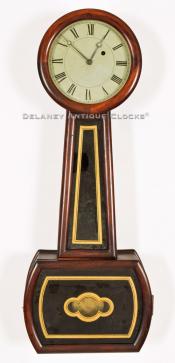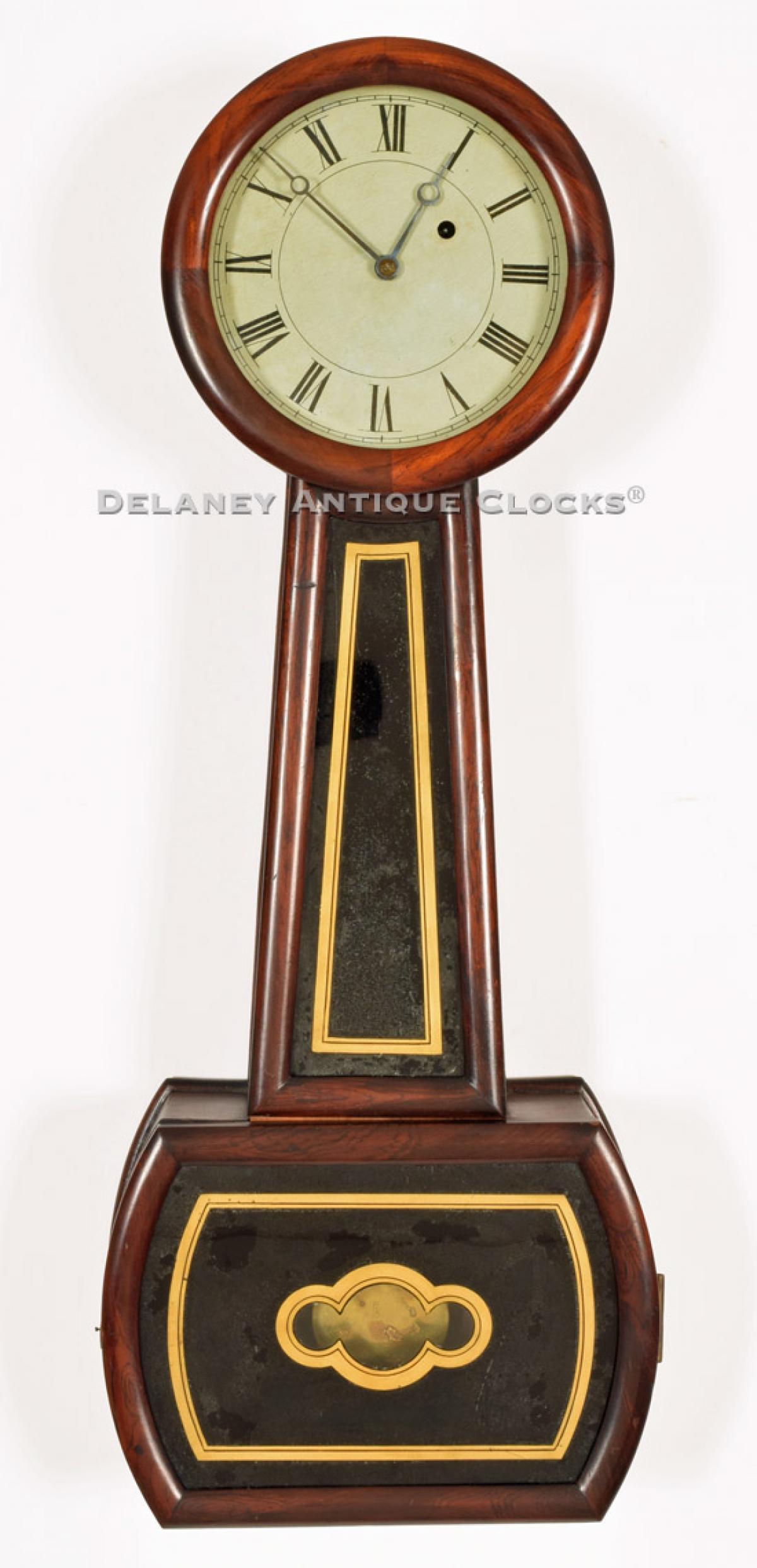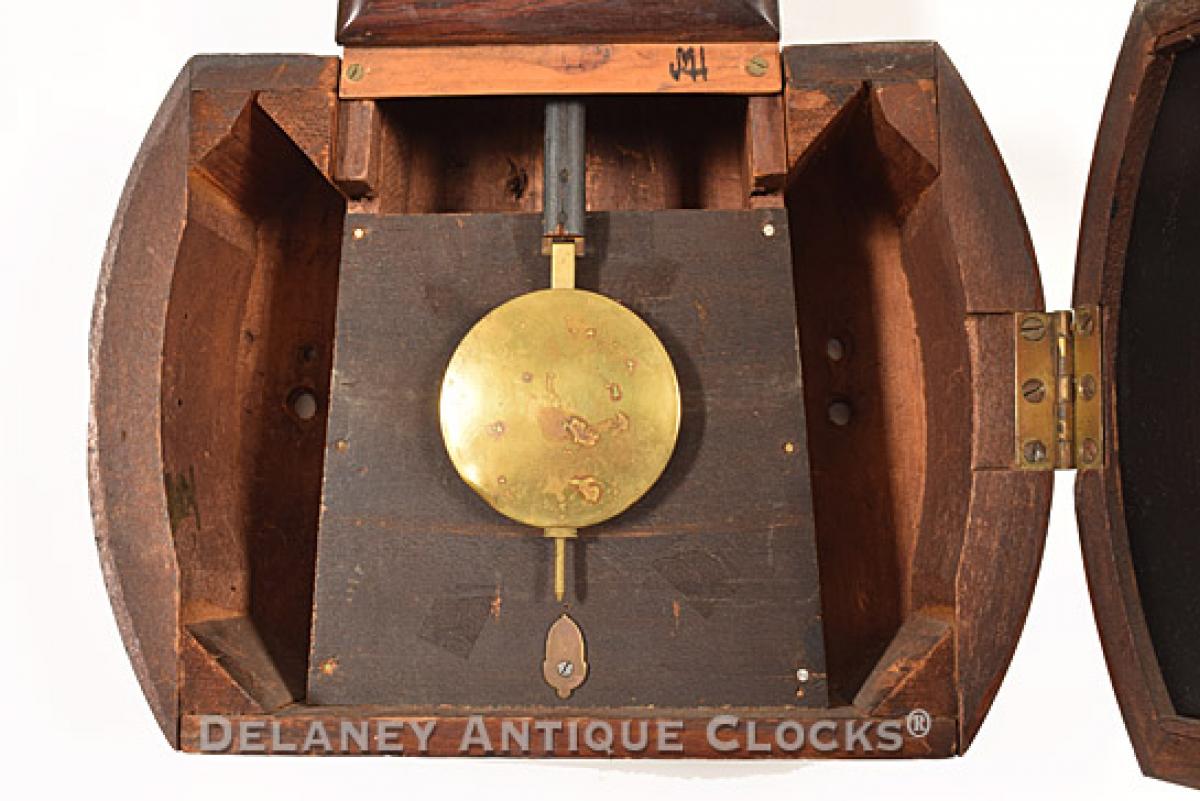George Hatch Timepiece made in North Attleboro, Massachusetts. A Banjo clock. 218099.
This is a nice clean example of a Timepiece made in Attleboro, Massachusetts, made by George Hatch. This design or form was made famous in Boston by the Willard and their apprentices. A popular example of this case form was made in quantity by the Howard & Davis firm and then later by E. Howard & Co. This example, made outside of Boston, is very similar to Howard No. 5 in terms of its size.
This fine clock measures 29 inches long and is fitted with a 7-inch diameter dial. The case is constructed popular and with a faux grain pattern to simulate the rich look of mahogany. This is done with an ink and stain. The case is fitted with a turned wooden bezel and rounded frames. Both of the frames retain their original tablets. These are paint-decorated with traditional gilt patterns. This decoration is applied from the back and stabilized with a black field. The turned wooden bezel opens to a painted iron dial. This dial is formatted with a closed minute ring and large Roman-style hour numerals. It is not signed, as is the case with most of these examples. The brass movement is weight driven and is designed to run for eight days on a full wind. The weight is cast iron and is original to the clock. The movement is mounted with two screws through the back plate. The shape of the keystone, the construction of the two-piece pendulum having a detachable bob, and the acorn-shaped swing marker all suggest George Hatch as the Maker.
This super clean example was made circa 1860.
Inventory number 218099.
George Hatch was born in Attleboro in 1816 and died in North Attleboro in 1879. He was a prominent citizen. He represented the town of Attleboro in the Massachusetts State Legislature for three years, served on the School Committee and was town Treasurer. He had business dealings with many prominent Clockmakers. Some of which include Horace Tifft and David Williams of Newport, RI. Wall regulators and banjo clocks have been found.










